Hyundai i30 vs VW Touran – Which one offers the better deal?
Compare performance, boot capacity, efficiency and price at a glance.
Find out which car is the better choice for you – Hyundai i30 or VW Touran?
Costs and Efficiency:
Price and efficiency are often the first things buyers look at. Here it becomes clear which model has the long-term edge – whether at the pump, the plug, or in purchase price.
Hyundai i30 has a clearly advantage in terms of price – it starts at 24000 £, while the VW Touran costs 35400 £. That’s a price difference of around 11404 £.
Fuel consumption also shows a difference: VW Touran manages with 5.20 L and is therefore minimal more efficient than the Hyundai i30 with 5.70 L. The difference is about 0.50 L per 100 km.
Engine and Performance:
Power, torque and acceleration say a lot about how a car feels on the road. This is where you see which model delivers more driving dynamics.
When it comes to engine power, the VW Touran has a slight edge – offering 150 HP compared to 140 HP. That’s roughly 10 HP more horsepower.
In acceleration from 0 to 100 km/h, the VW Touran is hardly perceptible quicker – completing the sprint in 8.90 s, while the Hyundai i30 takes 9.60 s. That’s about 0.70 s faster.
In terms of top speed, the VW Touran performs minimal better – reaching 209 km/h, while the Hyundai i30 tops out at 197 km/h. The difference is around 12 km/h.
There’s also a difference in torque: VW Touran pulls noticeable stronger with 360 Nm compared to 253 Nm. That’s about 107 Nm difference.
Space and Everyday Use:
Beyond pure performance, interior space and usability matter most in daily life. This is where you see which car is more practical and versatile.
Both vehicles offer seating for 5 people.
In curb weight, Hyundai i30 is a bit lighter – 1291 kg compared to 1520 kg. The difference is around 229 kg.
In terms of boot space, the VW Touran offers clearly more room – 834 L compared to 395 L. That’s a difference of about 439 L.
In maximum load capacity, the VW Touran performs clearly perceptible better – up to 1980 L, which is about 679 L more than the Hyundai i30.
When it comes to payload, VW Touran somewhat takes the win – 601 kg compared to 509 kg. That’s a difference of about 92 kg.
Who wins the race?
The VW Touran proves to be is largely superior and therefore becomes our DriveDuel Champion!
VW Touran is the better all-rounder in this comparison.
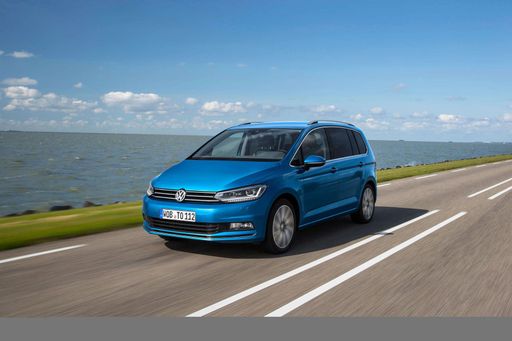
VW Touran
Hyundai i30
The Hyundai i30 stands out in the hatchback segment with its sleek design and modern features. It offers a comfortable ride with a well-crafted interior that caters to both driver and passengers. With its emphasis on safety and technology, the i30 provides a balanced driving experience suitable for urban and suburban environments.
details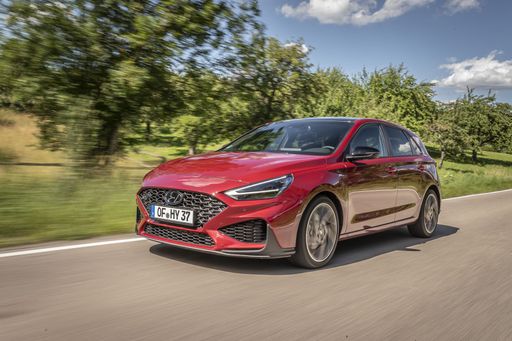 @ hyundai.news
@ hyundai.news
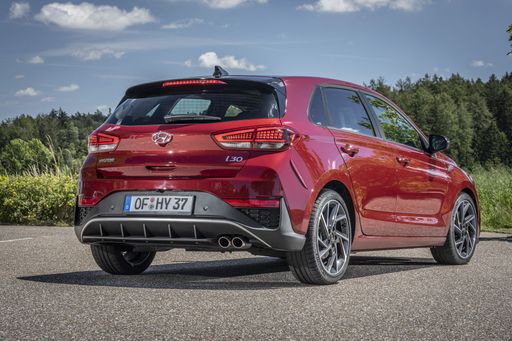 @ hyundai.news
@ hyundai.news
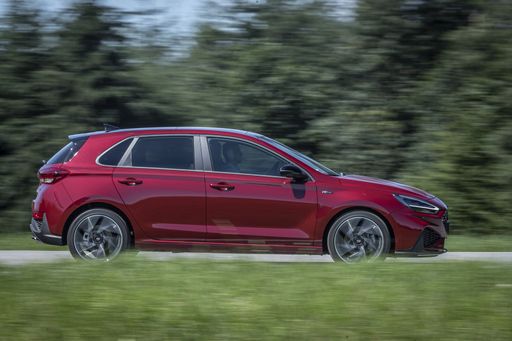 @ hyundai.news
@ hyundai.news
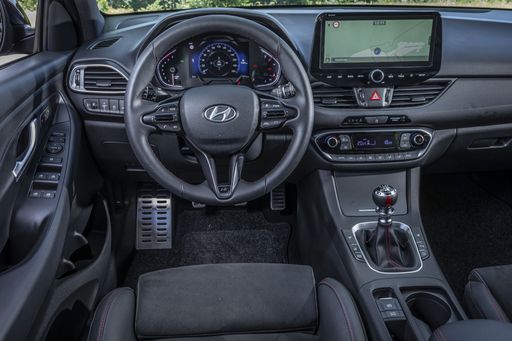 @ hyundai.news
@ hyundai.news
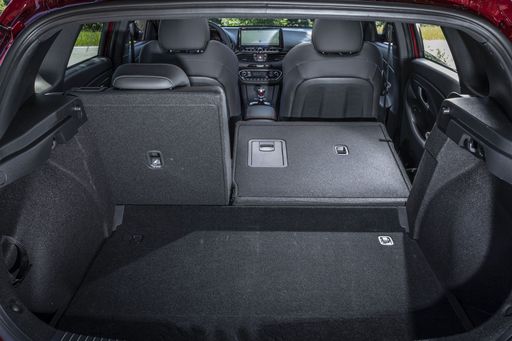 @ hyundai.news
@ hyundai.news
VW Touran
The VW Touran stands out as a versatile and reliable choice for family transportation. Its spacious interior and cleverly designed seating arrangements offer exceptional comfort and practicality for both short trips and long journeys. With a focus on safety and an array of advanced features, the Touran delivers a driving experience that combines convenience with peace of mind.
details @ volkswagen-newsroom.com
@ volkswagen-newsroom.com
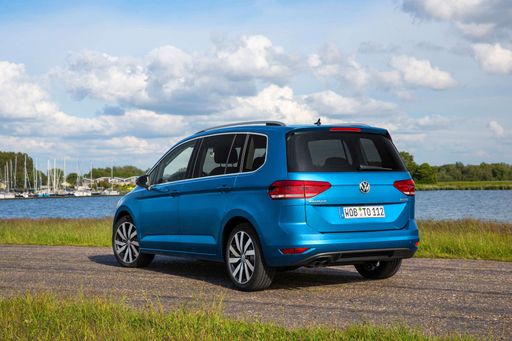 @ volkswagen-newsroom.com
@ volkswagen-newsroom.com
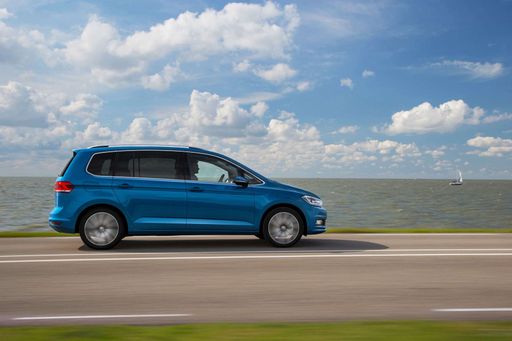 @ volkswagen-newsroom.com
@ volkswagen-newsroom.com
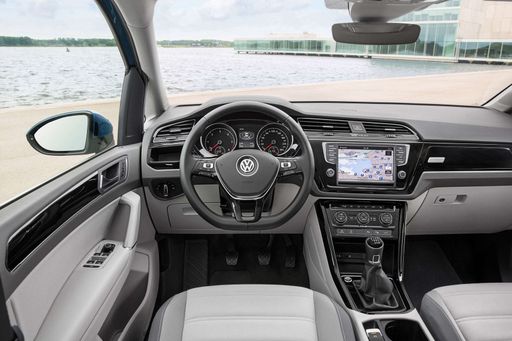 @ volkswagen-newsroom.com
@ volkswagen-newsroom.com
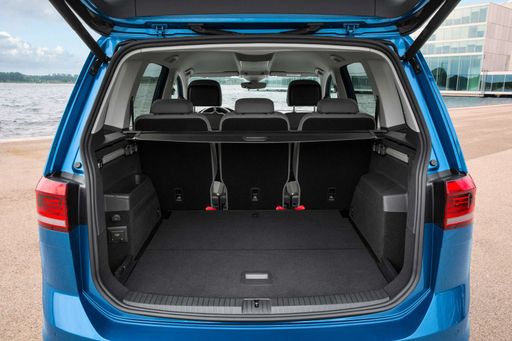 @ volkswagen-newsroom.com
@ volkswagen-newsroom.com

|

|
|
|
|
Costs and Consumption |
|
|---|---|
|
Price
24000 - 29300 £
|
Price
35400 - 43900 £
|
|
Consumption L/100km
5.7 - 6 L
|
Consumption L/100km
5.2 - 6.5 L
|
|
Consumption kWh/100km
-
|
Consumption kWh/100km
-
|
|
Electric Range
-
|
Electric Range
-
|
|
Battery Capacity
-
|
Battery Capacity
-
|
|
co2
130 - 136 g/km
|
co2
136 - 149 g/km
|
|
Fuel tank capacity
50 L
|
Fuel tank capacity
58 L
|
Dimensions and Body |
|
|---|---|
|
Body Type
Hatchback
|
Body Type
MPV
|
|
Seats
5
|
Seats
5
|
|
Doors
5
|
Doors
5
|
|
Curb weight
1291 - 1407 kg
|
Curb weight
1520 - 1631 kg
|
|
Trunk capacity
395 L
|
Trunk capacity
834 L
|
|
Length
4340 mm
|
Length
4527 mm
|
|
Width
1795 mm
|
Width
1829 mm
|
|
Height
1455 mm
|
Height
1668 mm
|
|
Max trunk capacity
1301 L
|
Max trunk capacity
1980 L
|
|
Payload
463 - 509 kg
|
Payload
590 - 601 kg
|
Engine and Performance |
|
|---|---|
|
Engine Type
Petrol, Petrol MHEV
|
Engine Type
Petrol, Diesel
|
|
Transmission
Manuel, Automatic
|
Transmission
Manuel, Automatic
|
|
Transmission Detail
Manual Gearbox, Dual-Clutch Automatic
|
Transmission Detail
Manual Gearbox, Dual-Clutch Automatic
|
|
Drive Type
Front-Wheel Drive
|
Drive Type
Front-Wheel Drive
|
|
Power HP
100 - 140 HP
|
Power HP
122 - 150 HP
|
|
Acceleration 0-100km/h
9.6 - 13.1 s
|
Acceleration 0-100km/h
8.9 - 10.8 s
|
|
Max Speed
178 - 197 km/h
|
Max Speed
195 - 209 km/h
|
|
Torque
172 - 253 Nm
|
Torque
250 - 360 Nm
|
|
Number of Cylinders
3 - 4
|
Number of Cylinders
4
|
|
Power kW
74 - 103 kW
|
Power kW
90 - 110 kW
|
|
Engine capacity
998 - 1482 cm3
|
Engine capacity
1498 - 1968 cm3
|
General |
|
|---|---|
|
Model Year
2024
|
Model Year
2024 - 2025
|
|
CO2 Efficiency Class
D, E
|
CO2 Efficiency Class
E
|
|
Brand
Hyundai
|
Brand
VW
|
What drive types are available for the Hyundai i30?
Available configurations include Front-Wheel Drive.
The prices and data displayed are estimates based on German list prices and may vary by country. This information is not legally binding.
